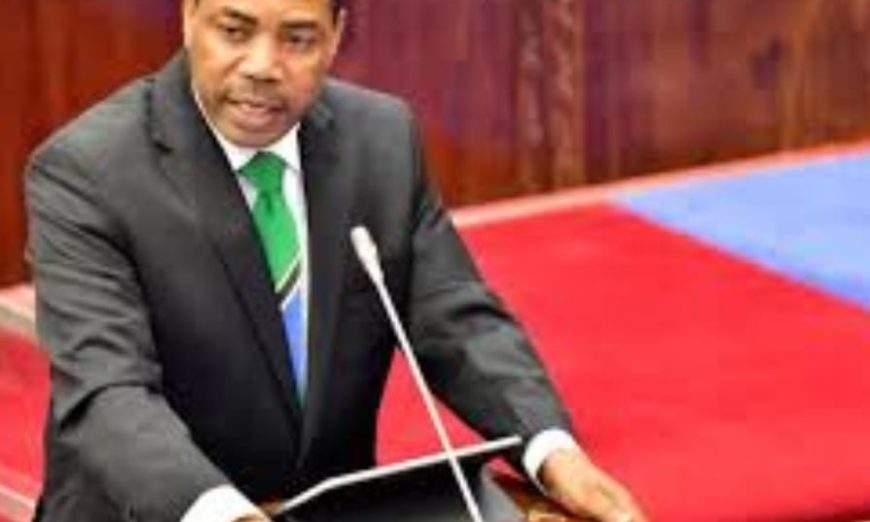DEAR Dr. Mwigulu,
My memo as you prepare to read the 2022/2023 national budget.
In Tanzania as in neighbouring countries, new thinking on government collections has become a tall order. The revenue to GDP ratio is in doldrums. Tax avoidance and tax evasion are critical factors as to why revenues are in the hole.
The presupposition is that, past fiscal slippages would be sealed by tax amelioration hence revenue growth. Business and citizens continue to bleat of ponderous tax burden.
It is common knowledge that it is the duty and responsibility of citizens to pay taxes. But you always forget to say, it is not the duty of government to embezzle tax revenue. When government backslide to take up on prime concerns in the eyes of the “precariats” and instead spends the revenue on opulent, unorthodox programs which are prebendalistic in nature such as the the proposed TSH10 billion for rehabilitation of CCM sports stadia that do not benefit the hoi polloi, there cannot be reason then why citizens must continue to pay taxes.
Dear Dr. Mwigulu
On June, 15, 2021, President Samia Suluhu Hassan asked CCM to rehabilitate it’s sports stadia. She did not mean to use public revenue for prebendalistic project neither did she allow strategic corruption. Such government expenditure can only mean that government is not ready to put economics above good common sense.
There are many ways in which government spends the tax revenue collected from its citizens. It spends on military,health, servicing of national debt, education and agri-programs. However, government spending requires fiscal discipline in macro-economics management speak.
Dear Dr. Mwigulu,
Comparative examples on how rich countries pay higher taxes than Tanzania are politically loaded and economically naive. Countries such as Sweden which is ranked second in the highest tax burden, its citizens support the burden because Sweden along with equally high-taxing Denmark and Norway, tops every global metric of successful countries.
For most of the citizens in those countries paying high taxes is a benefit not a problem and they are very happy to pay because they get value for the money. In economics-speak, the economic cost is justifiable. Schools are pleasing and children get first class education and they have good teachers.
The health services are superb and security is of prime concern. Many citizens have confidence in the state to meticulously manage public finance. The welfare state is real unlike “kuupiga mwingi” avalanche in every other public policy pronouncement in Tanzania.
The government thinks that increasing more taxes will give us more revenue for growth to turbocharge the economy. Which is occasionally correct to a certain extent. However, the more realistic position is to keep the tax burden low and tame government overspending. I don’t mean Austerity, I know you know. Given the general current economic situation and more importantly the state of “kitchen-table economics”, the ripple effects of overtaxing are lethal and something must be done to avoid it.
Reports from government Public Expenditure Review vindicates high taxes and humongous tax burdens are a clinical feature of the government’s wasteful expenditure. In today’s state of affairs, the government doesn’t need to increase taxes but to tame its sumptuous and opulent expenditures.
Why increase tax burden when it is possible to clinically tackle your uncontrolled spending? The government is full of programs that depend on self-reported, unsubstantiated informations and red herring statistics that are susceptible to fraud and waste. If strategic corruption in budgeting proceeses is controlled, government expenditure scrutinized, fiscal discipline can obtain.
While I am urging you tame expenditures, I fully understand what our recent past has taught us~our leaders who pretend to do this, in most cases lack the will. Nonetheless, if our policy thinkers get brighter and reduce prebendalistic spending, there is no need to move away from a “pay and Chase” model in which auditors scramble to recoup funds spent on fraudulent claims.
Dear Dr. Mwigulu,
Intemperate public expenditure, negatively affects the fiscal and trade balance. In this sense, it can not be realistic to expand revenue through tax increase to cope with escalating public expenditure.
While expounding revenue is vital, reducing unnecessary expenditure is urgent and critical. It is the trouble of curbing government expenditure that makes the restrain of the fiscal deficit an unnerving task but an instantaneous necessity.










